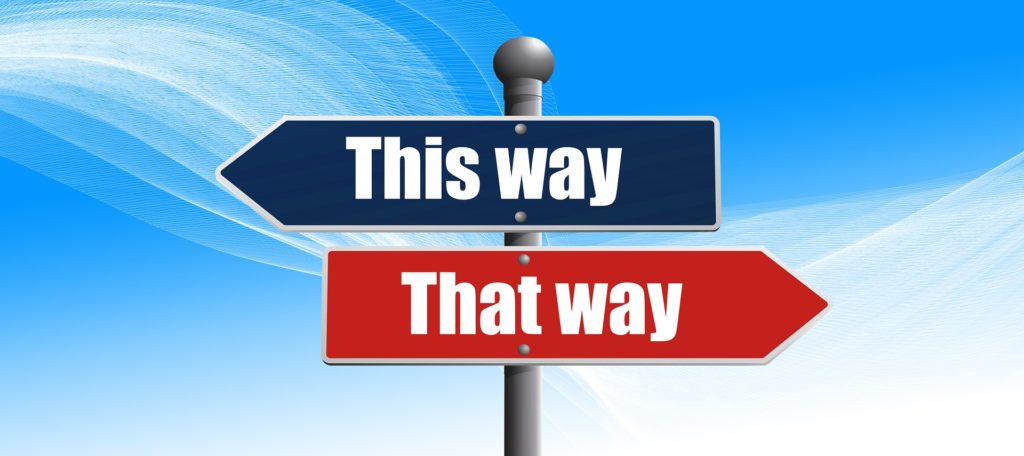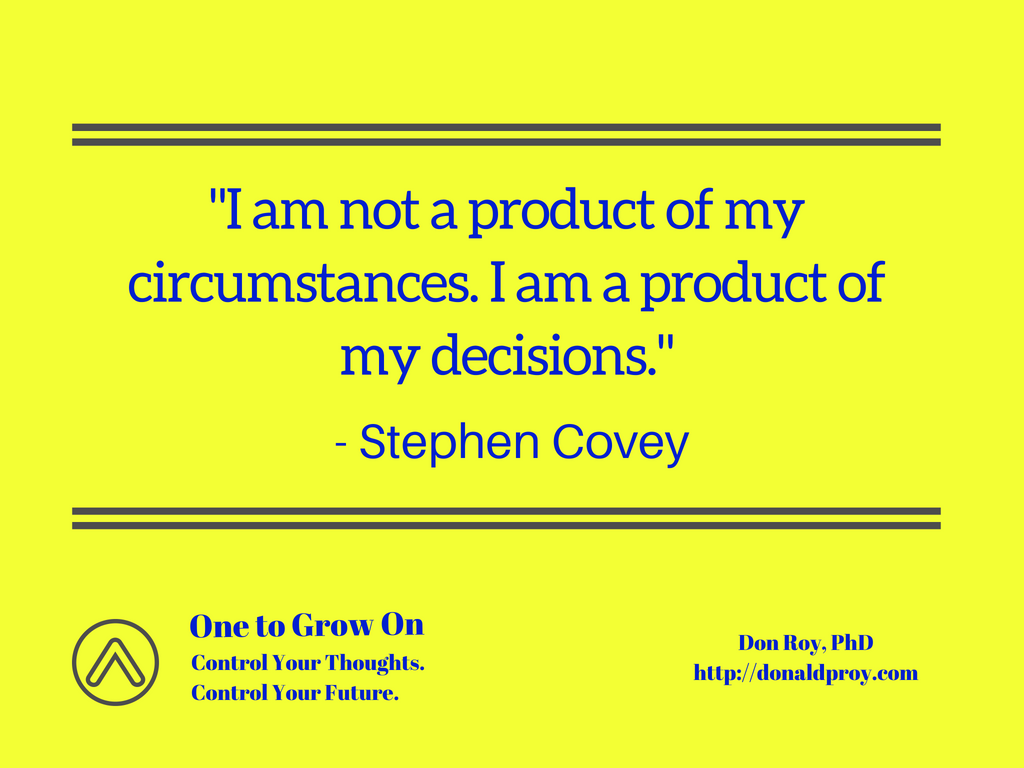Control is an interesting state with which we interact. On one hand, many people wish they could take control of situations in order to get desired results. For example, if you like meticulously planning travel so that every aspect of a trip is covered, it can be challenging, even frustrating, to enjoy a trip with a group for which the itinerary is set by someone else. On the other hand, we may be quick to cede control when results do not go our way. Blame the weather, the economy, the neighbors, the boss, or any other external source that can be designated as the cause for undesired outcomes.
If you see yourself more as a victim of circumstance than guided by your choices, this week’s One to Grow On quote is a call to rethink the source of your outcomes. Author and leadership expert Stephen Covey, best known for writing The 7 Habits of Highly Effective People, refused to allow us to play the “Oh Woe is Me” sad song.
The good news is our fate is not determined by chance and whims. Rather than depending on good luck or timely breaks to “make it,” we have control over reaching goals and experiencing personal growth.
A Bottle in the Sea
Despite Stephen Covey’s exhortation to see ourselves as a product of our decisions, we too often focus on circumstances as drivers of our outcomes. This thinking is like a bottle floating in the sea. Its direction is determined solely by the current and waves, helpless in navigating to a particular place for landfall. Moreover, we willingly accept and embrace external circumstances as reasons for our current state of affairs. Why do give over control of outcomes to circumstances?
- It’s easy. If something does not go according to our plan, it makes sense to blame external forces. After all, we would not wish failure upon ourselves. “Facing rejection by a graduate program or being passed over for a promotion must be due the decision makers, not me, right? I cannot help if they did not recognize my abilities and value.” This line of reasoning is less time consuming and complex than a deeper evaluation of what I could do better to improve my chances in the future.
- It’s painless. Realizing you are not happy, healthy, or wealthy is one thing; pinning the shortcomings on your choices and behavior can be a painful step to take. Do I want to take the blame for adding extra pounds because I could not say no to desserts and late night snacks? Or, can I do my ego a favor and point to a hectic schedule or stressful work environment to justify treating myself to foods that contribute to weight gain? Yes, let’s blame schedule, job, or anything else that absolves me of the result.
Is it possible that circumstances can determine your outcome? Yes. Sometimes, external forces beyond our control throw a wrench into carefully developed plans. For example, numerous stories have been told in the past decade by Americans whose business (or employer’s business) was devastated by the economic recession that began in 2008. Successful businesses and prosperous employees were jolted into a new reality: failure. The plan was not to crash and burn, but the economy was not interested in their plans.
Take Control
If we accept the idea that we are a product of our decisions, we have to move past shining the spotlight on circumstances. Rather than give external factors top billing in our life, shift the focus to taking control through decisions and actions. Is it easier said than done? Use these suggestions to take control:
- Make the decision to own it. We should be excited that we control our outcomes and that we are not tossed about like a bottle at sea. Recognizing we are not limited by circumstances is the first step toward breaking free of seeing ourselves as determined by outside forces.
- Remember past successes. When self-doubt creeps in about what determines your success, think back to times when your decisions or actions drove successful outcomes. For example, how did you manage your time when you made the Dean’s list while working two part-time jobs? You did not make the Dean’s list because you were lucky or won a lottery. Your decision to take control made it happen. Draw on past experiences of accomplishment to push through new challenges or uncertainties.
- Avoid negativity. You may decide to see yourself as the product of decisions instead of product of circumstances, but you will probably find yourself around others who prefer to tie their fate to circumstance. They find fault with politicians, their pastor, the homeowners association, climate, gas prices, or any other convenient explanation for their current state. Recognize the negative thinking when you encounter it and avoid, even if it means evaluating with whom you spend time.
Get Excited
Reminding ourselves we get to determine our own results through decisions could be the best news we hear all week. Embracing this mindset can smash many of the barriers that keep us from moving forward. Stop using the kids, household chores, or bank account as excuses for not stretching to achieve.



Good Article Dr. Roy. It is very much true. I liked the bottle in the sea floating analogy.
Thank you, Siva.